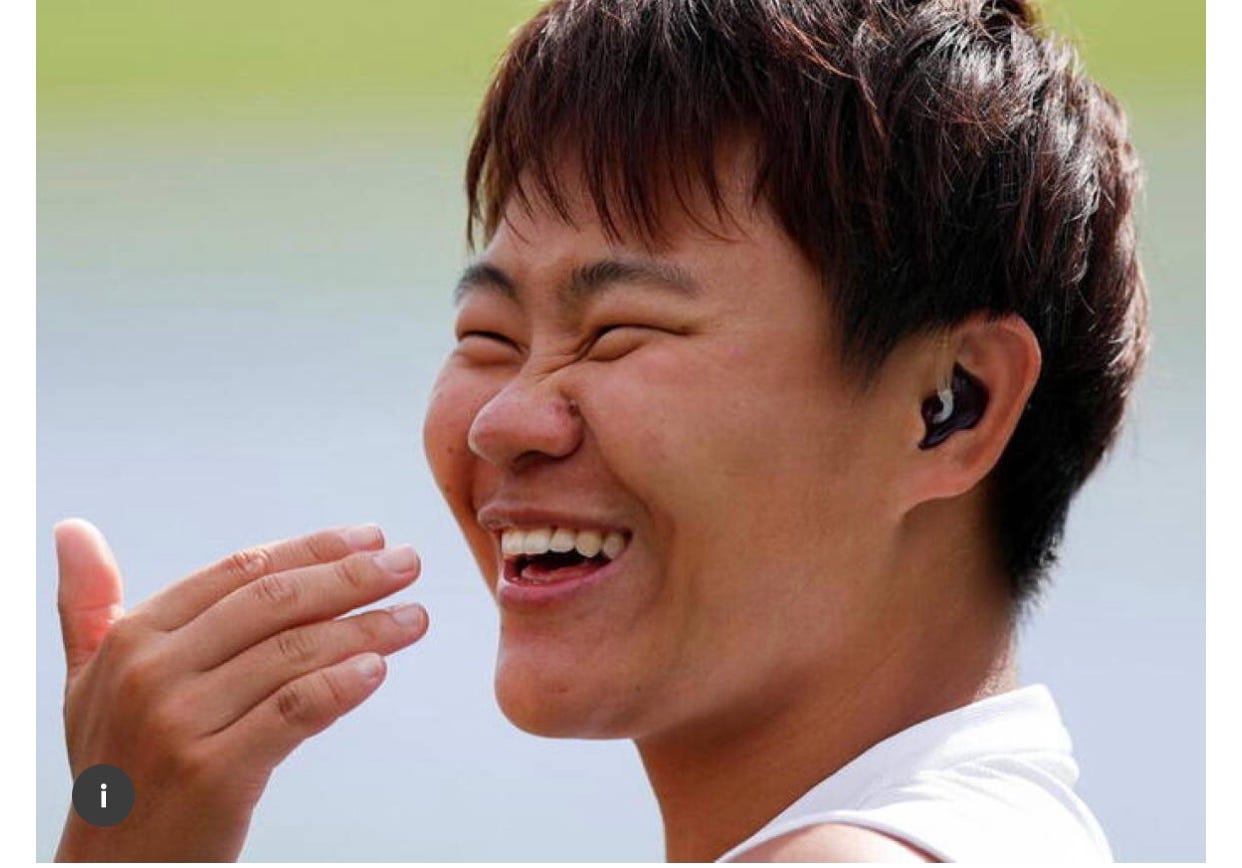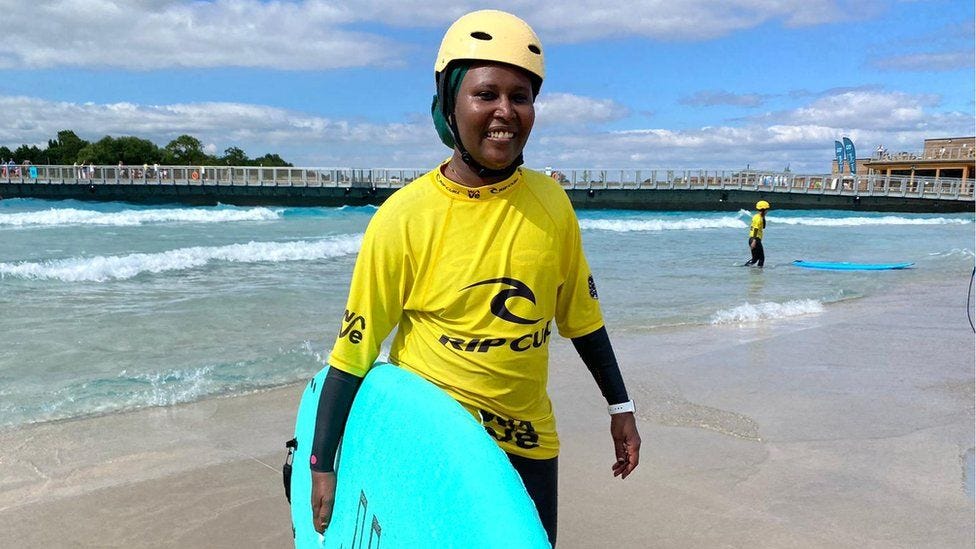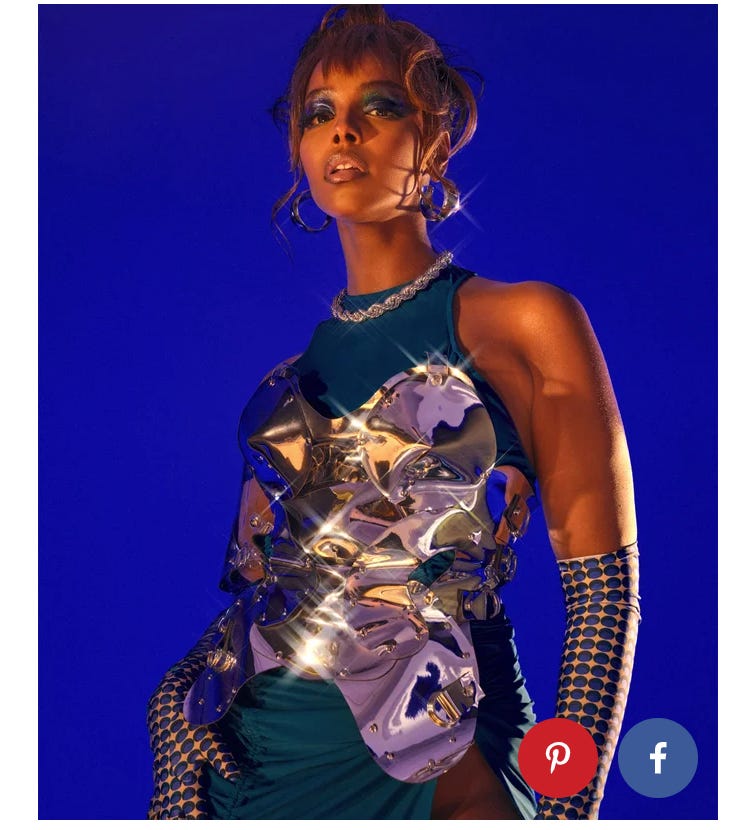Global Roundup: Colombia Survivors vs GBV, Deaf Trans Olympian, Women Break Hindu Tradition, Sudanese Woman Creates Safe Swimming Spaces for Muslim Women, Sexual Liberation for Black Muslim Artist
Compiled by Samiha Hossain
Yirley Velazco has two state-assigned bodyguards when she visits rural communities. Photograph: Megan Janetsky via The Guardian
TW: rape, sexual violence, massacre
Yirley Velazco and 12 other survivors of the massacre at El Salado in Colombia created a network called Mujeres Sembrando Vida (Women Sowing Life) to support victims of sexual and domestic violence in the northern Colombian region of Montes de María, an area still plagued by conflict.
In 2000, about 450 paramilitary fighters stormed the small town of El Salado, forcing people out of their homes into the field, and then proceeded to torture and kill. Velazco, who was 14 at the time, was gang-raped. Many survivors had to flee to nearby cities and towns where they faced poverty and stigma for having been forcibly displaced.
When they began to discuss El Salado, I heard them talk about thousands of things [the community needed] – a health centre, a road, a church – but when they finished I said to myself: ‘What about the women?’ Because I lived it. I’ve felt the pain, I know the helplessness that comes from being ignored. - Yirley Velazco
Velazco and her team support victims through the process of reporting cases, run in-person workshops in rural communication, and have set up a collective savings account to help women in emergencies. The team has helped 280 women in El Salado and nearby communities to date. The work of Mujeres Sembrando Vida is crucial during the COVID-19 pandemic as the surge in domestic abuse cases has been especially rampant in Latin American countries.
With the resurgence of violence in Colombia, Velazco’s work has become increasingly difficult and dangerous. She says she has received about 500 death threats via message, 100 over the phone and 5 written on her door. The threats often reference rape. She drives with two state-assigned bodyguards in a truck with bullet-proof windows.
We want to bring [new women] with us to help clear their minds so they can live in better conditions, tell their stories, and so their wounds can heal. - Yirley Velazco
Being a survivor and supporting other survivors has its own challenges. On top of that trauma, activists like Velazco must also constantly worry about their safety and read violent, misogynist messages. While the patriarchy tries to silence women at every corner, they continue to envision a world where survivors can heal and thrive.
-————————————————————
So Sato, 25, a deaf and transgender pole vaulter, communicates with other deaf athletes by using sign language during their camp training in Utsunomiya, north of Tokyo, Japan July 10, 2021. Picture taken July 10, 2021. REUTERS/Issei Kato
So Sato is a 25-year-old transgender pole vaulter who is expected to represent Japan at the Deaflympics in Brazil next year. In 2013, he won silver in his first Deaflympics and is hoping for gold in Brazil. He wants to bring hope to young people struggling with their identity. This year, over 160 openly lesbian, gay, bisexual, transgender and queer athletes are due to participate in Tokyo 2021.
When I was younger, there was information on being deaf or transgender, but I couldn't find a lot on that crossover.I hope that younger people who have similar struggles can see me and feel safer in the fact that I'm managing okay. True, there are difficulties, but there's nothing unfortunate at all about being both deaf and transgender. - So Sato
Sato is a trans man, but he is legally considered a woman because he has not transitioned or had hormone therapy. He says that transitioning would bring about other complications.
I get mixed feelings about it. It just doesn't feel right to me. If I win in the men's category, I imagine people will say that I won because I'm taking hormones. - So Sato
Activists have been calling on the Japan government to pass an LGBT+ equality law ahead of the games to keep the promise of making increased diversity one of the legacies of the Olympics. However, a bill in June was shelved because of strong opposition from conservative lawmakers.
I hope that Japan can become a bit more inclusive for all sorts of minorities with the help of the Olympics. Although I wish we didn't have to rely at all on the Olympics for that change. - So Sato
--————————————————-
Mandira Bedi performed husband Raj Kaushal's funeral rites - Press Turst of India via BBC
Indian actress and TV presenter Mandira Bedi broke what many consider patriarchal, archaic tradition by performing her husband’s last rites. Cremations are traditionally performed by men and women are discouraged from even being there.
Some conservative Indians and right-wing trolls were upset by this on social media and told Bedi that her 10-year-old son should have lit the pyre at the funeral. She is certainly not the first woman to break this tradition. Due to the COVID-19 pandemic, many wives and daughters were seen doing the last rites, as male family members died, were infected with the virus, or could not travel because of the lockdown.
Many Hindu priests and scholars say that women are not banned in the scripture from visiting a crematorium or performing the last rites of their loved ones. Women being banned was likely reinforced through gender norms and patriarchal culture.
When women break these traditions, they are asserting that they have the right to grieve how they want and they will not be held back by age-old norms.
Author and columnist Shobhaa De wrote that the image of "a grief-stricken Mandira doing her husband's last rites challenged archaic norms governing our society for centuries and sent out a charged and powerful anti-patriarchy message".
When Bedi lit her husband's pyre this week, unknowingly she also lit countless fires in the hearts of men and women who believe in themselves - and not in conventions that have held back our society for centuries. Those shackles instantly broke as the flames from the pyre touched the sky. - Shobhaa De
--————————————————
Wafa Suliman said she found it difficult to find places to swim after moving to Bristol via BBC
I have been swimming in my country all my life, but when I came to Bristol I didn't know where to go. There aren't many places for Muslim women with a hijab to go and it was difficult. - Wafa Suliman
Wafa has been working with Open Minds Active over the past three months to teach Muslim women how to swim and break down the barriers that prevent many Muslim women from participating in the activity. Some of these barriers include finding culturally appropriate facilities.
Many of the women taking part in the project said they would have never dreamt of going swimming, let alone outdoors in lakes and rivers. Even Wafa has had the opportunity now to try swimming in a wave for the first time.
Now I'm trying all the different lakes, swimming pools, and to have the opportunity to still wear my hijab and try this, is amazing. - Wafa Suliman
It is nice to see a Muslim woman leading this important project. In many cases, women who wear a hijab are targeted by Islamophobia as well as the patriarchy, which makes it difficult to do activities such as swimming. Being in a space where others also have an intimate understanding of these struggles is definitely validating and empowering.
--——————————————————
PHOTOGRAPHED BY WILLY VERSE via Refinery29
Artist Amaal Nuux was born in Mogadishu, Somalia during the height of its civil war, which lead her family to immigrate to Canada. She started her music career in 2012, but committed full-time in 2019, which is when she received a Juno nomination for Soul/R&B Recording of the Year for her EP Black Dove.
In an interview with Refinery29, Amaal speaks about her new EP Milly to be released in the fall. She discusses the backlash she receives as a Black Muslim woman and how she had to liberate herself in order to liberate others through her music.
When Amaal first started out in the industry she was conscious of deviating from singing about her motherland and activism. She was afraid that if she started making music about other topics like her relationships and heartbreak, she would receive backlash from her community and listeners.
My stories are valid, and I'm allowed to be multifaceted and multi-dimensional. As Black women, we deserve and can be those things. We should let it shine and come out, it shouldn't be held back or covered. - Amaal Nuux
Amaal considers her new project much more honest, and she has allowed herself to not be defined by others’ expectations anymore. She wanted her latest single Honey to be “sexy”, “fun” and “cocky”.
There's a huge misconception because culture plays a huge role in the way that society operates and dictates, that Islam does not empower women to be sexually empowered, especially within their personal spaces, with their husbands. I understand I'm crossing boundaries here… [Honey] is coming from a place of wanting women to be able to be sexy, [and] feel sexy on their own terms, especially now. - Amaal Nuux
Navigating a space where Black women are hypersexualized, and Muslim women are desexualized can be challenging. It is inspiring when artists like Amaal reject prescribed categories and make art that is authentic to themselves.
——————————————————
Samiha Hossain (she/her) is a student at the University of Ottawa. She has experience working with survivors of sexual violence in her community, as well as conducting research on gender-based violence. A lot of her time is spent learning about and critically engaging with intersectional feminism, transformative justice and disability justice.
Samiha firmly believes in the power of connecting with people and listening to their stories to create solidarity and heal as a community. She refuses to let anyone thwart her imagination when it comes to envisioning a radically different future full of care webs, nurturance and collective liberation.






